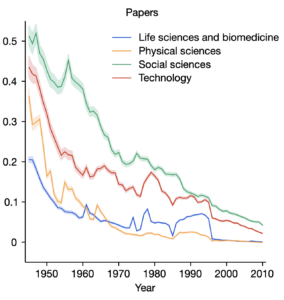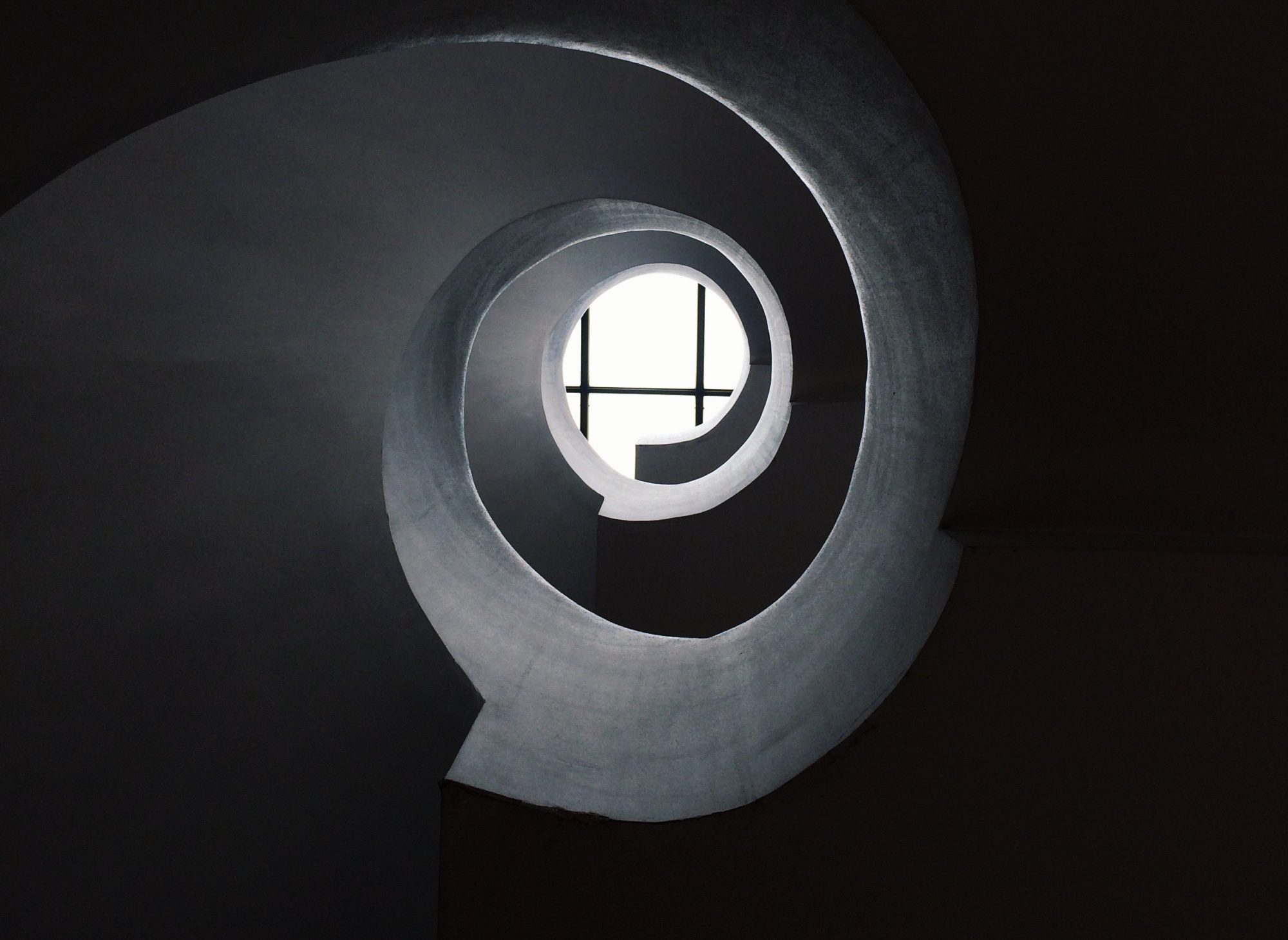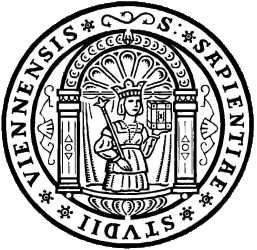
A highly interesting paper revealing the decline in the level of innovativeness and disruptiveness in science (and patents) since 1950. This recently published paper in Nature is based on a study of an extensive body of 45+ million papers and suggets “across fields, we find that science and technology are becoming less disruptive.” (p 139)
“Relying on narrower slices of knowledge benefits individual careers, but not scientific progress more generally.” (p 143)
What does this mean for our funding agencies, our universities as supposed places of innovation, and academia in general?
The authors suggest some ways out of this development (p 143f):
- scholars may be encouraged to read widely and
- given time to keep up with the rapidly expanding knowledge frontier.
- Universities may forgo the focus on quantity, and more strongly reward research quality, and
- perhaps more fully subsidize year-long sabbaticals.
- Federal agencies may invest in the riskier and longer-term individual awards that support careers and not simply specific projects,
- giving scholars the gift of time needed to step outside the fray,
- inoculate themselves from the publish or perish culture, and produce truly consequential work.
I would like to add:
- interdisciplinary cooperation that is truly interdisciplinary (in the sense of integrating and synthesizing premises from different disciplines and cultures of thought). Innovation often happens at the edges and intersections of fields/disciplines.
- engage in a mode of co-creation, co-becoming, correspondence (Ingold), and “thinGing” (Malafouris) with the world, leading to
- assuming a more humble attitude of openness and a mindset of listening and of being led by the creativity of the world (see also Peschl (2019, 2020, 2022))
Thank you Thomas Grisold for pointing me to this paper

